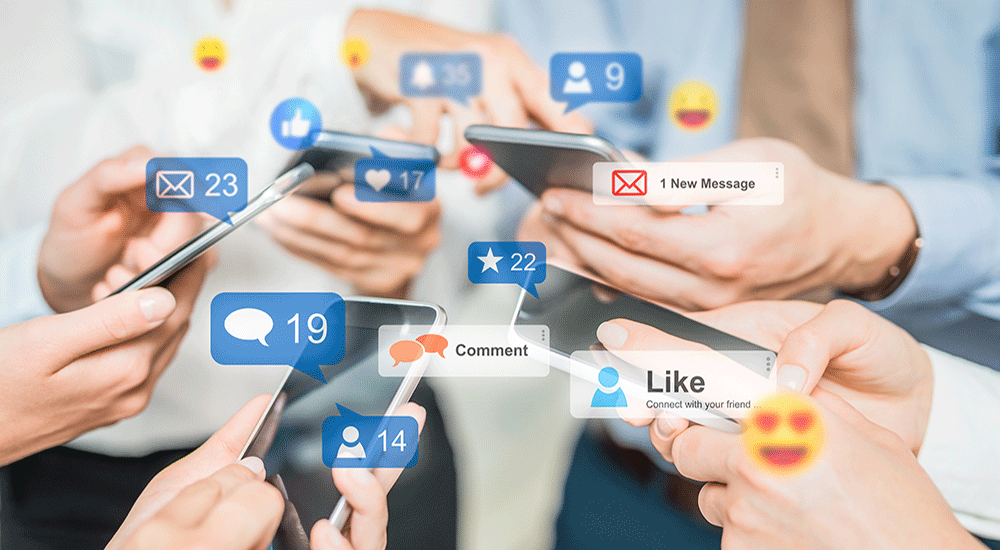One in five U.S. teens say social media has negatively impacted their mental health and nearly half say it has a mostly negative impact on kids their age.
A Pew Research Center report published Tuesday determined teens are growing more wary of social media. The survey, distributed to 1,391 U.S. teens ages 13 to 17 in the fall of 2024, found 48% agree social media has a largely negative effect on teens — up from 32% in 2022.
Fewer teens (14%) said it has a negative impact on their own mental health, although that figure jumped from 9% in 2022. Teen girls were more likely than boys to report that social media has harmed their mental health (25% vs. 14%). They were also more likely to say it negatively affects their confidence (20% vs. 10%) and sleep (50% vs. 40%).
“The overuse of social media in our society seems to be the main cause of depression among those in my age group,” one teen respondent wrote. “People seem to let themselves be affected by the opinions of people they don’t know, and it wreaks havoc upon people’s states of mind.”
RELATED: 45% of College Students Predict Anxiety, Stress Will Be Their Biggest Challenge This Year
Alexandra Hamlet, a clinical psychologist based in New York City, told CNET that while she wasn’t surprised by the overall rise in the number of teens acknowledging the negative impact social media can have on mental health, she was surprised by the significant gap in how many teens reported that their own personal mental health has been affected. Hamlet partly attributes the discrepancy to a lack of understanding about how social media can indirectly influence other factors such as bullying, societal issues, school life, and social pressures.
“I would argue that many individuals, teens even more so, may not be aware of the impact that certain content or interactions can have on these other factors, and that there is no real way of separating them fully from the social media variable,” she said. “For example, while many teens are likely to say that they feel a lot of pressure on them to succeed in life, they may not realize that looking at posts of friends having a good time can make them feel less successful socially, even if their social lives are reported to be fulfilling.”
While many teens agree on the negative impacts of social media, even more agree on its positive impacts. A majority of respondents (74%) say social media platforms make them feel more connected to friends and 63% say the apps give them a place to showcase their creativity.
Even so, nearly half of teen respondents (45%) agree they spend too much time on social media, up from 36% in 2022. Another 44% say they have cut back on time spent on social media and their smartphones.
Parents Concerned About Social Media and Teen Mental Health
The survey also asked parents about their views on how social media impacts teen mental health and determined parents are more likely to be concerned than teens. Fifth-five percent of parents say they are extremely or very concerned while 35% of teens say the same. More teens than parents say they’re not too or not at all worried about the state of teen mental health (23% vs. 11%).
Social media (44%) and technology in general (14%) ranked highest as the top things parents believe negatively impacted teens’ mental health, compared to only 22% and 8% of teens.
RELATED: Which States Have Banned Cell Phones in Schools?
“Technology, which is making them more afraid to try things, makes them less creative and makes them less likely to figure out how to solve their own problems, whether relationally or physically,” one mother wrote.
Teens and parents also have different comfort levels when it comes to talking about teen mental health, with 80% of parents reporting they’re extremely or very comfortable talking to their teen about their mental health and 52% of teens reporting they feel the same way.







